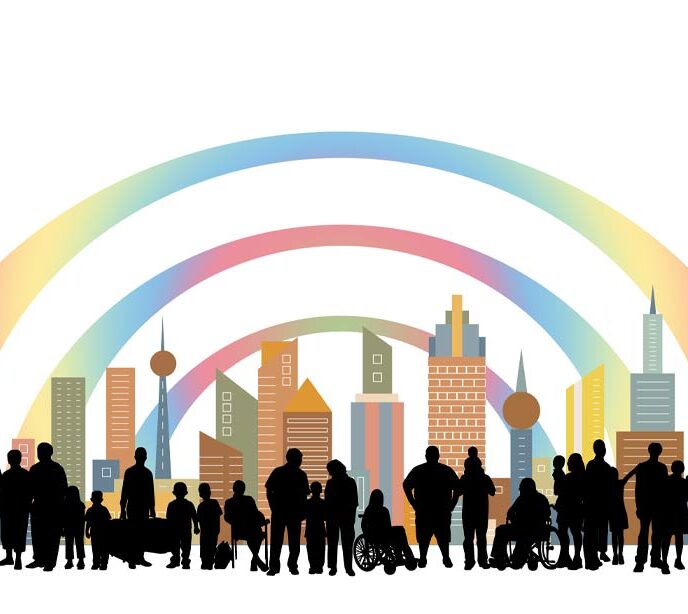Autism and Comorbidities
Autism is often associated with several common comorbidities, including seizure disorders and bipolar disorders. Understanding their diagnosis, treatment, and proper care can greatly improve the quality of life for autistic individuals. Learn more about these comorbidities and how to manage them effectively.

Autism and Comorbidities – Seizure Disorders & Other Common Disorders
Autism, a complex developmental condition, varies greatly among autistic individuals. It exists on a spectrum, encompassing a wide array of experiences, behaviors, and characteristics distinct to each person. From facing challenges in social communication and interactions to finding comfort in repetitive behaviors and special interests — autism’s diversity is as unique as the people it affects.
Often, conditions like epilepsy and attention deficit hyperactivity disorder (ADHD) co-occur with autism. These additional conditions are called comorbidities.
Autism and comorbid conditions
Comorbidities can be physical, mental, and behavioral. These coexisting conditions can affect an individual’s ability to function, as well as their quality of life. With each comorbidity comes a unique set of challenges, potentially adding further complexity to the autistic experience.
1. ADHD and autism comorbidity
ADHD is one of the most common comorbidities that occurs with autism. In fact, as many as 60% of children with Autism Spectrum Disorder (ASD) show ADHD-related symptoms and behaviors. ADHD typically manifests through inattentiveness, hyperactivity, and impulsivity. However, behaviors can present differently in boys and girls, as well as individually.
For example, autistic boys with ADHD may fidget more in class, have trouble sitting still, and blurt out answers without thinking. They may be clumsy and unaware of their bodies. Autistic girls with ADHD may be more forgetful and more likely to daydream. They may have trouble keeping their schoolwork organized. They may also be less attentive to what the other girls deem fashionable and trendy. But it’s also possible for autistic children with ADHD to experience a combination of all of these symptoms, depending on the individual.
ADHD can pose challenges to retaining information, accomplishing assignments, and sustaining attention for autistic children in school. Beyond the academic sphere, the social impact of the co-presence of autism and ADHD can also lead to the child feeling excluded or isolated.
2. Autism and anxiety comorbidity
Mood disorders like anxiety are common comorbidities experienced by autistic adults and children alike. Up to 40% of those with ASD experience high levels of stress and anxiety. This can look like excessive worry, obsessive thinking, or fixating on irrational fears, and can even result in panic attacks.
Autistic individuals are also more likely to experience social anxiety due to their difficulty picking up on social cues. This can lead to feelings of isolation, inadequacy, and a sense of not belonging.
3. Epilepsy and autism comorbidity
Around 20% to 30% of individuals on the spectrum experience epilepsy and seizure disorders. Seizures vary in type and severity. For example, some autistic individuals may experience only a few seizures per year, while others endure multiple seizures a day. The symptoms for this comorbidity can vary too. Mild symptoms can present as a brief loss of one’s awareness, whereas severe epilepsy can manifest as convulsions or a sudden loss of consciousness.
Seizure disorders can be incredibly disruptive to daily life — making it difficult for people with epilepsy disorders to attend school or work. In severe cases, seizures can even be life-threatening.
4. Autism and Down syndrome comorbidity
Down syndrome stems from a genetic condition caused by an additional copy of chromosome 21 (which is why Down syndrome is also known as trisomy 21). Alongside intellectual disabilities, this condition often brings with it various other conditions, including autism.
Individuals living with both autism and Down syndrome may experience certain social and developmental challenges. These challenges can include difficulty navigating social situations, trouble managing learning disabilities, as well as addressing certain intellectual limitations.
5. Autism and Bipolar Disorder comorbidity
Borderline personality disorder (BPD)is a mental health condition commonly characterized by unstable emotional states, distorted self-perception, and impulsivity.
When BPD and autism intersect, it can manifest through self-destructive behaviors, mood swings, unstable relationships, and intense fears of abandonment. Though the least common comorbidity on the list, BPD still affects approximately 1–10% of autistic individuals.
Implications of Autism Comorbidities and the Importance of a Diagnosis
Autism comorbidities are often overlooked, but they can have a profound effect on the lives of individuals with autism and their families. Getting an accurate and comprehensive diagnosis and a personalized treatment plan means that autistic individuals receive the support they need. If left untreated, comorbidities like ADHD and epilepsy can exacerbate existing challenges of autism, getting in the way of social and personal development, and potentially negatively affecting that person’s quality of life.
Treatment and Support
- Behavioral therapies: ABA therapy can be an effective treatment for addressing many of the challenges that come with autism and comorbidities. This modality focuses on developing essential skills and improving social interactions.
- Pediatric therapies : Including speech and occupational therapy, these services can support people with autism in addition to behavioral therapies and/or school supports.
- Medication: In some cases, medication may be prescribed to manage symptoms of comorbidities, such as ADHD or anxiety.
- Psychological interventions: Interventions like cognitive-behavioral therapy can be valuable for managing anxiety and mood disorders, and help the autistic individual with emotional regulation.
- Individualized Education Plans (IEPs): For individuals with autism and intellectual disabilities, IEPs can provide tailored educational strategies to support learning and skill development. IEPs are common in the pubic school system.
- Coordinated care: Coordinating care among the specialists you’re working with is crucial. This ensures that all aspects of an individual’s needs are being addressed holistically. Parents and caregivers should actively communicate and collaborate with healthcare providers, therapists, educators, and support groups to create a comprehensive plan.
Collaborate with Lighthouse Autism Center
Autism and its comorbidities are a nuanced landscape that demands understanding and tailored care. At Lighthouse Autism Center, we provide comprehensive autism resources and services. Learn more about our Lighthouse Fusion ABA Therapy program to find the right approach for your child’s unique needs.
Together, we can unlock your child’s potential
Related News

06/11/2025
Overcoming Stereotypes
Autism stereotypes are common and can have significant social consequences for autistic children. Misconceptions hinder the acceptance and inclusion of autistic children. Challenging these stereotypes is vital for creating a more understanding and supportive society. Challenging Common Autism Stereotypes When people hear the word “autism,” they often imagine a narrow set of images, like the […]

06/11/2025
What’s Next After ABA Therapy?
There are a number of reasons why an autistic child might stop ABA therapy, and one is that they have reached their goals. In this article, we take a look at what parents can expect going forward. What Are the Next Steps After ABA Therapy? As a parent, you only want what’s best for your […]

06/11/2025
Do Babies with Autism Smile?
We take a look at the importance of early intervention, some of the milestones for parents to look out for, and the more common signs of autism in babies. Do Babies with Autism Smile? Watching your baby grow is an exciting time, certainly one of life’s quiet wonders. From those first sleepy stretches to the […]


